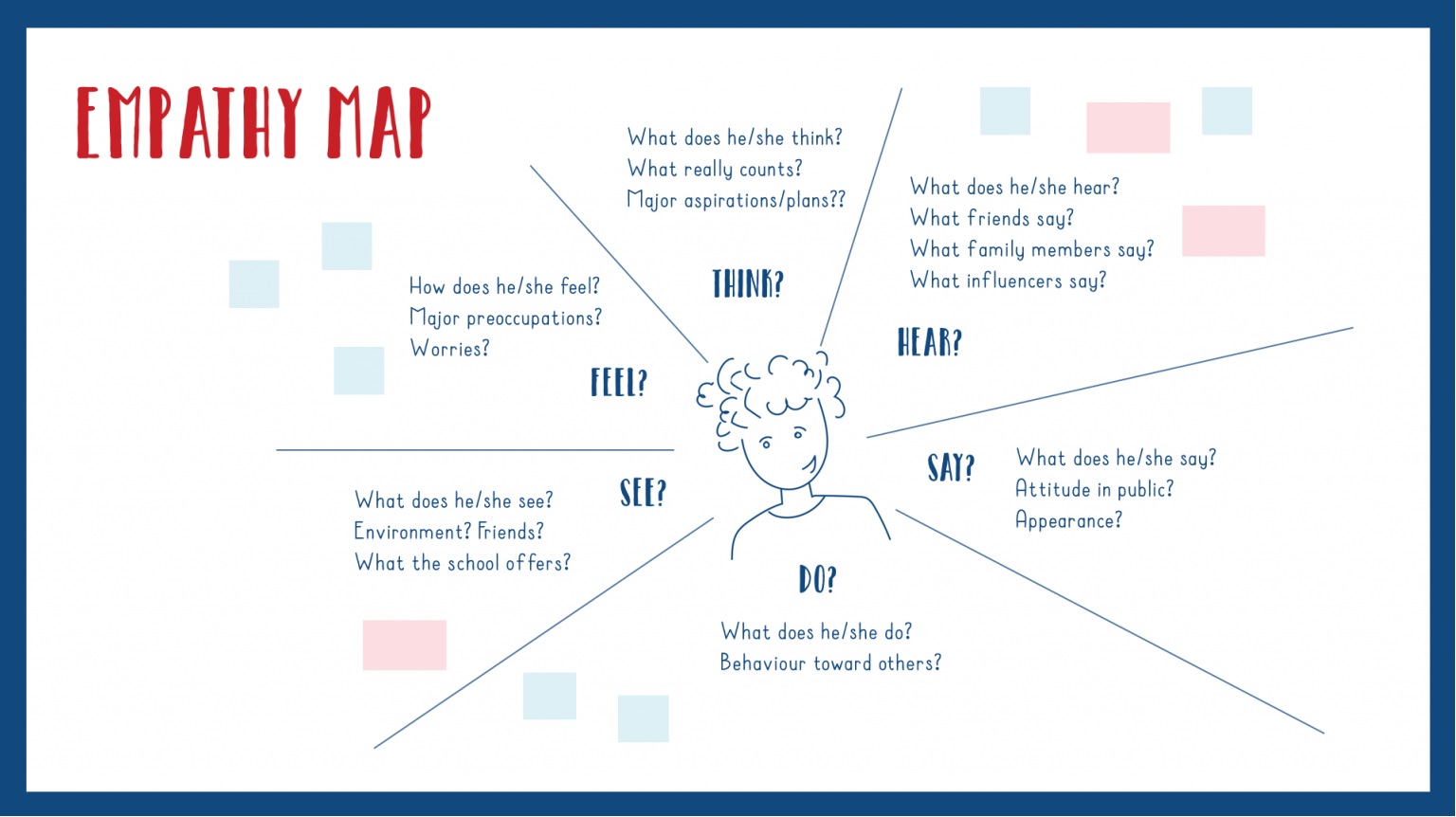Empowering Children: A Comprehensive Guide To Teach Empathy Effectively
10th October 2023
Empathy is one of the essential life skills that every individual should have because it not just only helps that individual to understand the feelings of others but it also helps them to understand their emotions as well.
It’s every parent and teacher's responsibility to teach children empathy from a very young age so that they become kind and an individual who understands other's feelings as well. If children learn the concept of empathy from a young age then it helps them to become empathetic individuals who will treat everyone kindly and understand other's emotions.
In this blog post, we will be exploring easy-to-use strategies to teach and cultivate empathy in children.
Before moving to the topic, can we ask you a question? Do you follow us on Social Media? We regularly share upgraded educational content, tips, feedback, and more. Check us out by clicking the profiles here - Facebook / Twitter / LinkedIn / Pinterest / Instagram / YouTube
So, without any further delay, let’s get started.
Understanding Empathy
Empathy is more than just feeling sorry for someone or showing sympathy. It involves the ability to put oneself in another person's shoes, understand their emotions, and respond with care and compassion. In the below image, you can see how children start to think when they have empathy.

Source: howpeoplelearnbooks.com
Every child has an essence of empathy from the day they are born but it’s the parents, caregiver, and teacher's responsibility to improve their knowledge further as they grow older so that they have the ability to acknowledge and appreciate the emotions, thoughts, and life experience of other individuals around them.
Now, let's get to know some important empathy developmental milestones that children develop from an early age:
1. Acknowledging Individuality
From an age, children begin to grasp the idea that they are separate individuals with their own thoughts and feelings. This understanding serves as a foundation for empathy by cultivating self-awareness and recognizing that others may hold different perspectives.
2. Social Observation
Around six months old babies start engaging in observation as a way to comprehend the world around them. They observe the reactions of their parents or caregivers in situations and use these cues to gauge their own emotional responses. For example, if a baby witnesses their parent interacting positively with a stranger they are more likely to feel secure and at ease in that person's presence.
3. Understanding Others Perspectives
Between 18 and 24 months old toddlers begin developing an understanding of the theory of mind. This means they recognize that other individuals possess thoughts, beliefs, and desires that may differ from their own. It is a milestone, towards empathy since children start acknowledging that others have unique viewpoints and emotions.
4. Self -Recognition
Around the same age range, toddlers also begin recognizing themselves when looking in a mirror. This important milestone indicates their increasing self-awareness and recognition of themselves as individuals. It creates a foundation, for showing empathy by assisting children in differentiating their emotions from those experienced by others.
Practical Strategies for Fostering Empathy in Children
Now that we have a deeper understanding of empathy and how it develops let's explore some practical strategies to help children to cultivate empathy:
1. Set an Example
Children learn by observing and imitating the behaviour of the adults around them. As a parent, caregiver, or teacher, you can demonstrate behaviour in your everyday interactions. Show kindness, respect, and empathy towards others whether they are family members, friends, or strangers. By witnessing these actions, children will also learn the importance of empathy.
2. Build a Strong Connection
As a parent, teacher, or caregiver it’s very important to form and build a strong relationship with children. When any child feel the acceptance and loving environment around them then it increases the chance that the child will develop empathy towards other as well.
You must dedicate some quality time to children and actively present with them and understand their thoughts and feelings. Make an environment where they have the freedom to express themselves freely.
3. Encouraging Perspective Taking
Encourage children to understand that people can have thoughts, emotions, and perspectives that may differ from their own. Engage in conversations that promote understanding and empathy. You could ask questions like, "How do you think your friend felt when you shared your toy?” Why do you think your sibling is upset?" By encouraging them to consider the emotions and experiences of others, you will help cultivate their ability to empathize and show compassion.
4. Exploring Books about Emotions
One of the best ways to introduce kids to emotions and empathy is through reading books. It's important to choose books that are both entertaining and educational teaching children about different emotions like happiness, sadness, anger, or fear. As you read a storybook together it prompts discussions about how the characters feel and helps children imagine themselves in situations.
5. Teaching Emotional Expressions
Expand children's vocabulary by teaching them words that describe their feelings. It's also essential to help them understand how others may be feeling. Use language that incorporates emotions, such as "excited" or "disappointed." This approach allows children to develop an understanding of emotions while empowering them to empathize with others.
6. Encouraging Active Listening Skills
Teach children the importance of listening when someone shares their thoughts or feelings. Encourage them to make eye contact, nod, acknowledgment, and ask follow-up questions that demonstrate interest. As children witness you how actively you listen to them will eventually make them active listeners toward others as well.
7. Nurturing Kindness and Gratitude
Make acts of kindness and gratitude a part of children’s daily life. Encourage children to participate in acts of kindness such as sharing their toys assisting those who are in need or expressing gratitude for the people and things they hold dear. These actions play a role in nurturing empathy and teaching children the importance of showing compassion towards others.
8. Encourage Pretend Play
Pretend play offers opportunities for children to explore different perspectives and emotions. Join with children in play and encourage them to take on various roles and characters.
While engaging in playtime have conversations, about the emotions and motivations of the characters involved which will definitely help you to cultivate a profound sense of empathy in children.
9. Teach Conflict Resolution
Conflicts are inevitable in social interactions, but they also provide valuable learning opportunities for empathy. Teach children how to resolve conflicts peacefully and respectfully. Encourage them to consider the feelings of others, find compromise, and seek win-win solutions. By navigating conflicts empathetically, children learn the importance of understanding and valuing different perspectives.
10. Practice Self-Reflection
Encourage children to reflect on their own emotions and actions. Help them understand the impact their behaviour has on others and guide them toward making empathetic choices. Ask questions like, "How do you think your friend felt when you ignored them?" or "What could you have done differently to show empathy in that situation?" By fostering self-reflection, you can empower children to become empathetic individuals.
Teach Empathy To Children For Their Bright Future
Empathy is one of the essential life skills that many people shows nowadays. However, those, teachers, parents, or even caregivers who have pursued courses like the Diploma in Counselling Course for Teachers know the value of teaching the concept of empathy to children from a very young age.
Empathy will not just make children kind human beings but it also helps them to recognize other emotions, they will not become a bully and also become better problem solvers as well. By incorporating the above-mentioned practical strategies parents, caregivers, and teachers can teach children the concept of empathy.
Lastly, remember that empathy is a lifelong skill that continues to evolve and grow, so embrace every opportunity to nurture and celebrate it in children’s life.
We believe education should be accessible for everyone. That’s why we don’t charge for our blogs. Find the right course that will help you in your career with us, contact us at - +91-6292150868. You can mail us at act@asiancollegeofteachers.com.
Written By : Abhishek